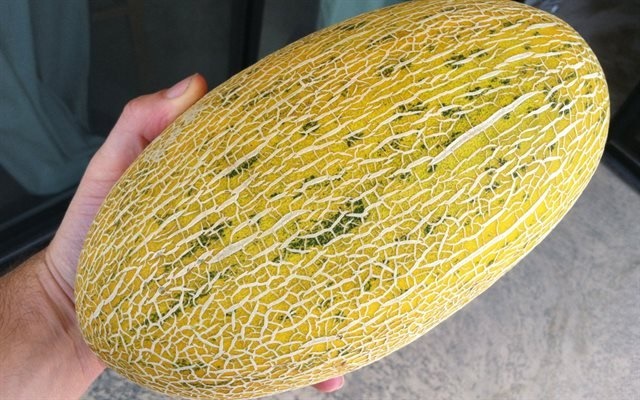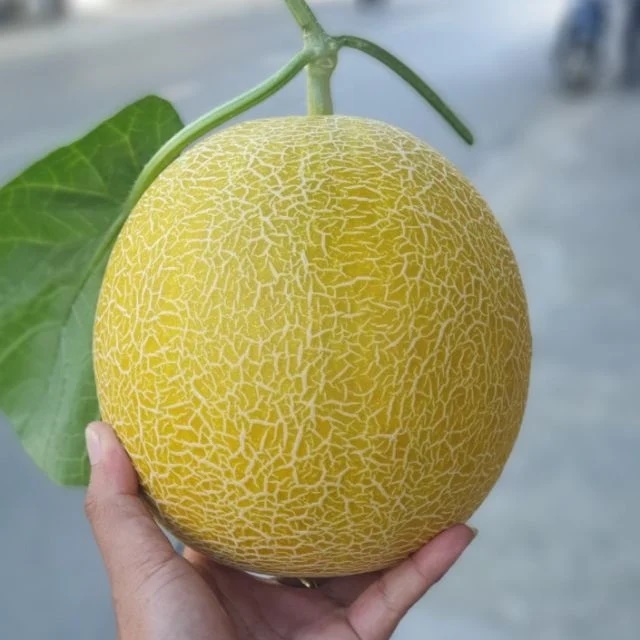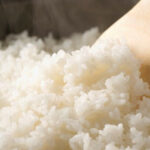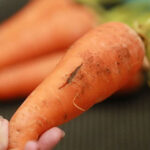Cantaloupe is a deliciously sweet treat, perfect for summer. This fruit is packed with essential nutrients like vitamins A, C, calcium, potassium, and zinc. Cantaloupe is also low in carbs, so you don’t have to worry about sudden spikes in blood sugar levels.
This type of melon is an excellent source of electrolytes, which help balance the body’s fluids, making it an ideal choice during hot summer days.
To choose the best cantaloupes, keep these tips in mind:
Shape of the Melon

Cantaloupes are generally round or oval in shape, with the oval variety being more common. Avoid melons with pointed ends as these tend to indicate insufficient water and light absorption during growth.
Look for melons with rounded, full shapes when purchasing.
Inspect the Rind’s Netting
Cantaloupe rinds have a distinct netting pattern. Feel the netting when buying; the more defined and raised it is, the riper the melon. Gray or light yellow netting indicates a ripe melon, and the deeper the netting and the rougher it feels, the sweeter the fruit will be.
Melons with less defined netting and a smoother feel are unripe and will taste bland.
Check the Stem

As with any melon, examine the stem. A fresh, green stem indicates a recently picked melon, while a dry or moldy stem means the cantaloupe has been sitting for a while.
Weight of the Melon
When holding two cantaloupes of similar size, the heavier one will likely be juicier and sweeter. A light melon indicates less water content and will taste blander.
Go for melons that feel solid and heavy for their size.
Smell the Melon
Ripe cantaloupes have a distinct, sweet aroma. If the melon has a thin rind, you should be able to smell its fragrance. When purchasing, check for a strong, sweet scent, which indicates a ripe melon. If there’s no scent, the cantaloupe isn’t ripe yet.
According to Sai Gon The Thao
Should You Choose Large or Small Carrots When Shopping?
Carrots have earned the nickname “little ginseng” due to their abundant nutrient content, especially carotene. This humble root vegetable is a staple in households across the globe. To ensure you’re getting the best carrots, packed with flavor and nutrients, here’s a quick guide on how to select the finest ones.
Taste Bud Bliss: The Secret to Picking the Perfect Honeydew Melon Lies in its Stem
Selecting a ripe and juicy honeydew melon is not as straightforward as choosing a watermelon – you can’t just tap it and expect accurate results. There is an art to choosing the perfect honeydew, and it certainly doesn’t involve tapping. The secret lies in a few simple techniques that will ensure you always pick the sweetest and most flavorful melon.
The Secret to Keeping Coriander Fresh All Year Round
Introducing the ultimate guide to keeping your cilantro fresh and vibrant for up to a year! Say goodbye to wilted, rotten herbs and hello to a vibrant, flavorful addition to your meals. With the tips and tricks from seasoned chefs, you’ll be able to transform your culinary creations and elevate your dishes to new heights. Learn the secrets to prolonging the lifespan of this delicate herb and enjoy its aromatic flavors all year round.


































